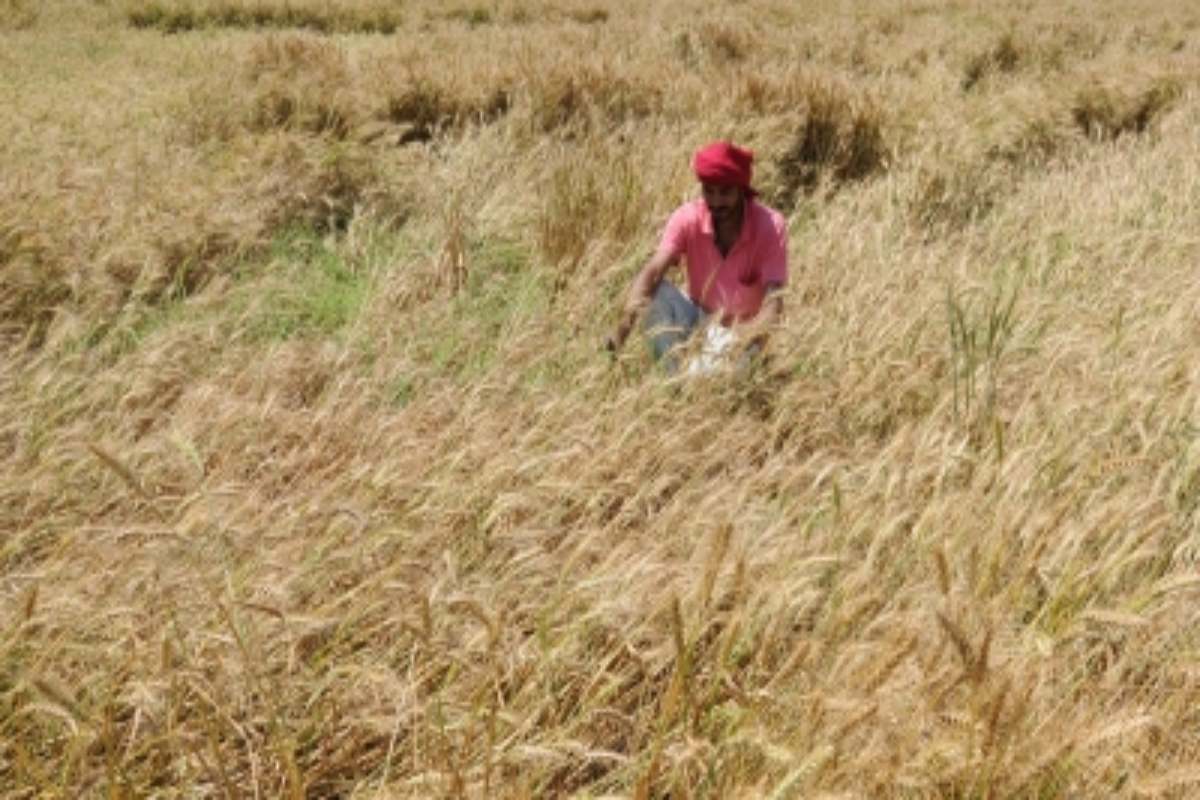Rajasthan CM assures assembly of purchasing millet at MSP
Clarifying a question about the purchase of millet during the Question Hour in the Assembly, he stated that the state government has sent a letter to the central government in this regard.
Briefing newspersons, Information and Broadcasting Minister Anurag Thakur said the MSP has been revised on the basis of the recommendations of the Commission for Agricultural Costs and Prices (CACP).

[Photo : IANS]
The Cabinet Committee on Economic Affairs (CCEA), chaired by Prime Minister Narendra Modi, on Wednesday approved an increase in Minimum Support Prices (MSP) for all mandated Rabi Crops for Marketing Season 2024-25.
Briefing newspersons, Information and Broadcasting Minister Anurag Thakur said the MSP has been revised on the basis of the recommendations of the Commission for Agricultural Costs and Prices (CACP). He said the Government has been committed to payment of MSP at one and a half times’ the cost of production to the farmers.
He said the higher MSPs will ensure remunerative prices to the growers for their produce. The absolute highest increase in MSP has been approved for lentil (masur) at Rs 425 per quintal, followed by rapeseed and mustard at Rs 200 per quintal. For wheat and safflower, an increase of Rs 150 per quintal, each, has been approved. For barley and gram, an increase of Rs 115 per quintal and Rs 105 per quintal, respectively, has been approved.
Advertisement
The revised MSPs for the 2024-25 Rabi season are wheat Rs 2275; barley Rs 1850; gram Rs 5440; lentil (masur) Rs 6425; rapeseed and mustard Rs 5650; and safflower Rs 5800.
Mr Thakur said the Government’s commitment to give better returns to the farmers is evident from the 2014 MSPs. The wheat MSP then was Rs 1400 per quintal; barley Rs 1100; gram Rs 3100; lentil (masur) Rs 2950; rapeseed and mustard Rs 3050; and safflower Rs 3050.
The Union Budget 2018-19 had announced fixing the MSP at a level of at least 1.5 times the All-India weighted average Cost of Production. The expected margin over the All-India weighted average Cost of Production in the new MSPs will be 102 per cent for wheat, followed by 98 per cent for rapeseed and mustard; 89 per cent for lentil; 60 per cent for gram; 60 per cent for barley; and 52 per cent for safflower. The increased MSPs of rabi crops will ensure remunerative prices to the farmers and incentivise crop diversification, the Minister said.
The Government is promoting crop diversification towards oilseeds, pulses and Shree Anna/millets to enhance food security, increase farmers’ income, and reduce dependence on imports. Besides the Price Policy, the Government has undertaken various initiatives such as the National Food Security Mission (NFSM), Pradhan Mantri Krishi Sinchayee Yojana (PMKSY), and the National Mission on Oilseeds and Oil Palm (NMOOP) with the objective to provide financial support, quality seeds to encourage farmers to cultivate oilseeds and pulses.
Moreover, to extend the benefits of the Kisan Credit Card (KCC) Scheme to every farmer across the nation, the Government has launched the Kisan Rin Portal (KRP), KCC Ghar Ghar Abhiyaan, and Weather Information Network Data Systems (WINDS), with the aim to provide timely and accurate weather information to empower farmers in making timely decisions regarding their crops.
As a result of these initiatives, foodgrain production has increased in the country by 31 per cent in the last eight years, up from 251.54 million tonnes to 330.54 million tonnes. Pulses and oilseeds production are also going up. The government’s decisions will revolutionize agriculture, enhance financial inclusion, optimize data utilization, and improve the lives of farmers across the nation, Mr Thakur said.
Advertisement